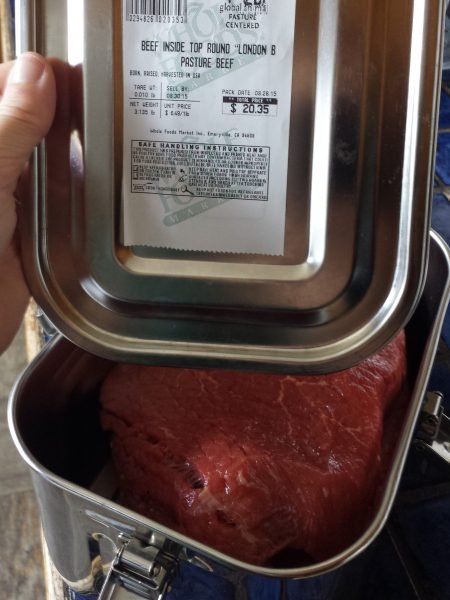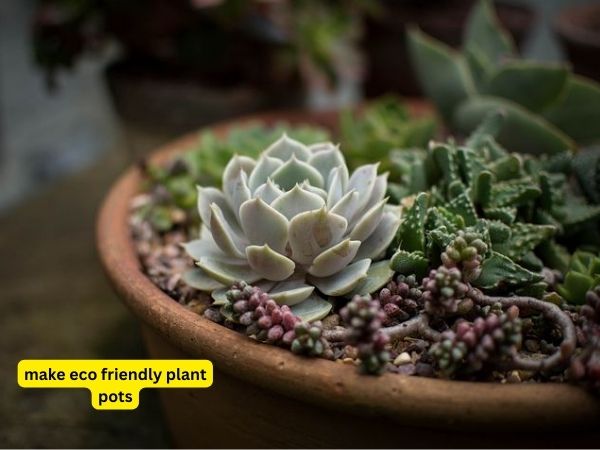Ultimate Guide: how to store meat without plastic
Looking for a better way to store your meat without relying on plastic? You’re in luck! In this article, we’ll explore some eco-friendly options that not only keep your meat fresh and safe but also help reduce plastic waste. We all know that plastic poses a significant threat to the environment, with its long-lasting impact on our oceans and wildlife. So, why not take a step towards sustainability by finding better alternatives? From reusable containers to natural wrapping materials, we’ve got you covered on how to store meat without plastic. Let’s dive in!
How to Store Meat Without Plastic
Storing meat without plastic is not only an environmentally friendly choice, but it also helps to maintain the quality and freshness of the meat for longer. Plastic containers and wraps can often leave a lingering odor and affect the taste of the meat. With a few simple alternatives and proper storage techniques, you can keep your meat fresh and delicious without relying on plastic. In this article, we will explore various methods and tips for storing meat without plastic.
1. Use Reusable Containers
One of the easiest ways to store meat without plastic is by using reusable containers. Opt for glass or stainless steel containers that are airtight and leak-proof. These containers not only keep your meat fresh but also prevent any odor or taste transfer. Here’s how you can store meat using reusable containers:
- Choose containers that are the right size for your meat cuts. Avoid leaving excess empty space to minimize air exposure.
- Wrap the meat in butcher or parchment paper to absorb any moisture and prevent sticking.
- Place the wrapped meat in the container and seal it tightly.
- Label the containers with the date and type of meat to easily identify them later.
- Store the containers in the refrigerator or freezer, depending on your desired storage time.
2. Wrap Meat in Beeswax Wraps
Beeswax wraps are a natural and sustainable alternative to plastic wraps. Made from cotton fabric coated with beeswax, these wraps create a breathable yet protective barrier for your meat. Follow these steps to wrap meat using beeswax wraps:
- Place the meat on the beeswax wrap and fold the edges over it.
- Gently press the wraps to mold them around the meat and create a tight seal.
- If needed, secure the wrap with a string or elastic band.
- Label the wrapped meat with the date and type before storing it.
- Store the wrapped meat in the refrigerator or freezer, depending on your needs.
3. Vacuum Seal Bags
Vacuum seal bags are a popular choice for long-term meat storage. These bags remove all the air, preventing oxidation and freezer burn. Here’s how you can store meat using vacuum seal bags:
- Cut the meat into appropriate portions for future use.
- Place the meat in a vacuum seal bag and seal it using a vacuum sealing machine.
- Label the bag with the date, type, and portion size for easy identification.
- Store the vacuum-sealed bags in the freezer for extended storage.
4. Butcher Paper
Butcher paper is a traditional choice for storing meat. It allows the meat to breathe while protecting it from external contamination. Follow these steps to use butcher paper for meat storage:
- Wrap the meat tightly in a layer of butcher paper.
- Fold the edges to secure the paper around the meat.
- If desired, wrap another layer of parchment paper around the butcher paper for additional protection.
- Label the wrapped meat with the date and type.
- Store the wrapped meat in the refrigerator or freezer.
5. Silicone Food Storage Bags
Silicone food storage bags are a versatile and eco-friendly option for storing meat. These bags are reusable and can be easily cleaned. Here’s how you can store meat using silicone food storage bags:
- Place the meat inside a silicone bag and seal it tightly.
- Squeeze out any excess air to minimize oxidation.
- Label the bag with the date and type of meat.
- Store the sealed bags in the refrigerator or freezer.
6. Use Aluminum Foil
While aluminum foil is not plastic-free, it can be a temporary solution for short-term meat storage. Here’s how you can use aluminum foil:
- Wrap the meat tightly in a layer of aluminum foil.
- Fold the edges to secure the foil around the meat.
- Label the wrapped meat with the date and type.
- Store the wrapped meat in the refrigerator for immediate use.
7. Store Meat in Glass Jars
Glass jars can be an excellent option for storing small amounts of cooked or shredded meat. Follow these steps to store meat in glass jars:
- Cook or shred the meat according to your preference.
- Allow the cooked meat to cool before placing it in a glass jar.
- Seal the jar tightly and label it with the date and contents.
- Refrigerate the jarred meat for short-term storage.
8. Utilize Freezer Paper
Freezer paper is another alternative to plastic wrap that provides a protective layer for meat in the freezer. Here’s how you can use freezer paper:
- Wrap the meat tightly in a layer of freezer paper.
- Secure the paper with tape or freezer-safe adhesive.
- Label the wrapped meat with the date and type.
- Store the wrapped meat in the freezer for extended storage.
9. Avoid Pre-Packaged Meat
One of the most effective ways to reduce plastic waste is by avoiding pre-packaged meat. Instead, consider buying meat from a local butcher or farmers’ market. Here are a few tips for purchasing meat without plastic packaging:
- Bring your own reusable containers or bags.
- Ask the butcher to wrap the meat in paper instead of plastic.
- Choose cuts of meat that are freshly wrapped or unwrapped.
10. Proper Storage Tips
To ensure your meat stays fresh and safe to eat, follow these general storage tips:
- Keep your refrigerator temperature at or below 40°F (4°C) to slow down bacterial growth.
- Store raw meat on the bottom shelf to prevent cross-contamination with other foods.
- Regularly clean and sanitize your storage containers to maintain hygiene.
- Always check the expiration dates and use the oldest meat first.
- Properly thaw frozen meat in the refrigerator to maintain its quality.
By adopting these plastic-free meat storage methods, you can reduce your environmental impact and enjoy fresh, flavorful meat. Remember to choose the method that best suits your needs and always prioritize food safety. With a little effort and conscious choices, you can store meat without plastic and contribute to a more sustainable future.
Freezing meat without plastic – Eco options for keeping meat in the freezer
Frequently Asked Questions
How can I store meat without using plastic?
There are several alternative options for storing meat without relying on plastic. One method is to wrap the meat in butcher paper, which is a food-safe and biodegradable option. Another option is to use glass containers with airtight lids to keep the meat fresh. You can also consider using silicone food storage bags or beeswax wraps, both of which are reusable and eco-friendly. Additionally, vacuum sealing the meat in reusable silicone bags or stainless steel containers is another effective way to store meat without plastic.
Can I use aluminum foil to store meat instead of plastic?
While aluminum foil can be used to store meat, it is not an ideal long-term solution. Aluminum foil is not airtight and may not provide sufficient protection against freezer burn or spoilage. However, if you only need to store the meat for a short period, such as a day or two, wrapping it tightly in aluminum foil can help keep it fresh in the refrigerator.
Are there any natural alternatives to plastic wrap for storing meat?
Absolutely! Instead of plastic wrap, you can use reusable beeswax wraps made from cotton fabric coated in beeswax. These wraps can be molded around the meat to create an airtight seal. Additionally, silicone food storage bags are another great alternative. They are flexible, airtight, and can be reused again and again, making them an eco-friendly option for storing meat.
What are some tips for storing meat without plastic in the freezer?
When storing meat in the freezer without plastic, it’s important to ensure it is well-sealed to prevent freezer burn. One option is to vacuum seal the meat using reusable silicone bags or stainless steel containers. You can also wrap the meat tightly in butcher paper and then place it in airtight glass containers or silicone bags to provide an extra layer of protection against freezer burn.
Can I store meat in mason jars instead of plastic containers?
Yes, mason jars can be used to store meat. However, it’s crucial to choose the appropriate size jar to ensure a proper fit. Fill the jar with the meat, leaving some headspace at the top, and then seal it tightly. Mason jars are great for short-term storage in the refrigerator, but for long-term freezer storage, it is recommended to use airtight glass containers specifically designed for freezing.
How long can I store meat without plastic in the refrigerator?
The storage time for meat without plastic in the refrigerator depends on various factors such as the type of meat, freshness at the time of purchase, and the storage conditions. Generally, raw beef, pork, and lamb can be safely stored in the refrigerator for 3-5 days, while chicken and turkey should be consumed within 1-2 days. It’s important to keep the meat well-sealed in airtight containers or wrapped in butcher paper to maintain its quality and prevent cross-contamination.
Final Thoughts
Storing meat without plastic is both eco-friendly and beneficial for our health. By utilizing alternative methods such as glass containers, beeswax wraps, and silicone bags, we can reduce our plastic waste and avoid the potential hazards of chemicals leaching into our food. Additionally, investing in airtight containers and utilizing proper refrigeration techniques can extend the shelf life of meat and prevent spoilage. By making simple changes to our storage methods, we can make a positive impact on the environment and our well-being. Store meat without plastic and make a difference today.



